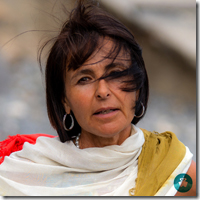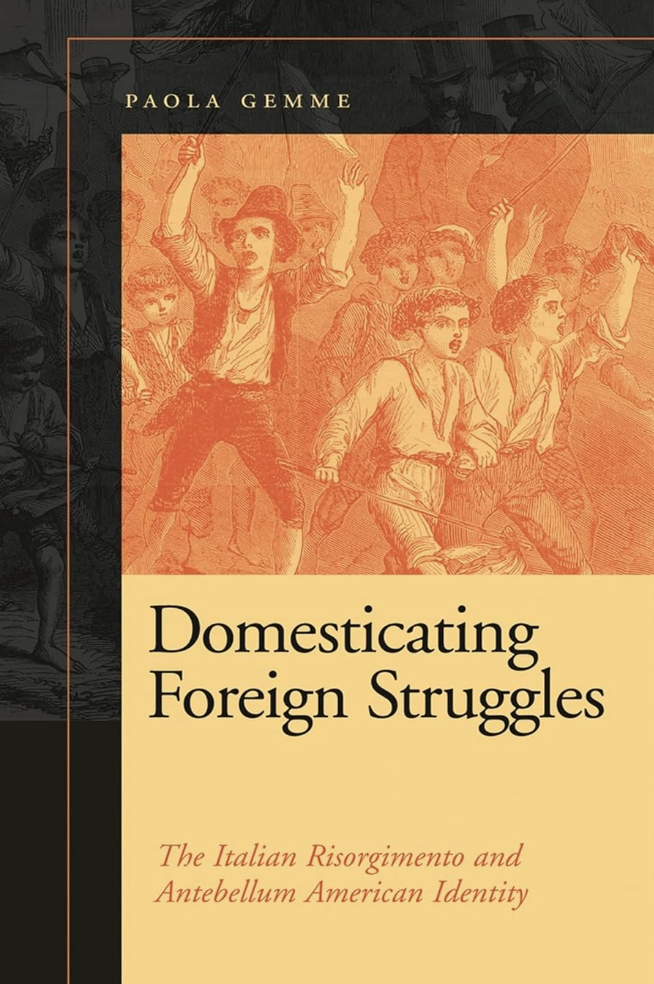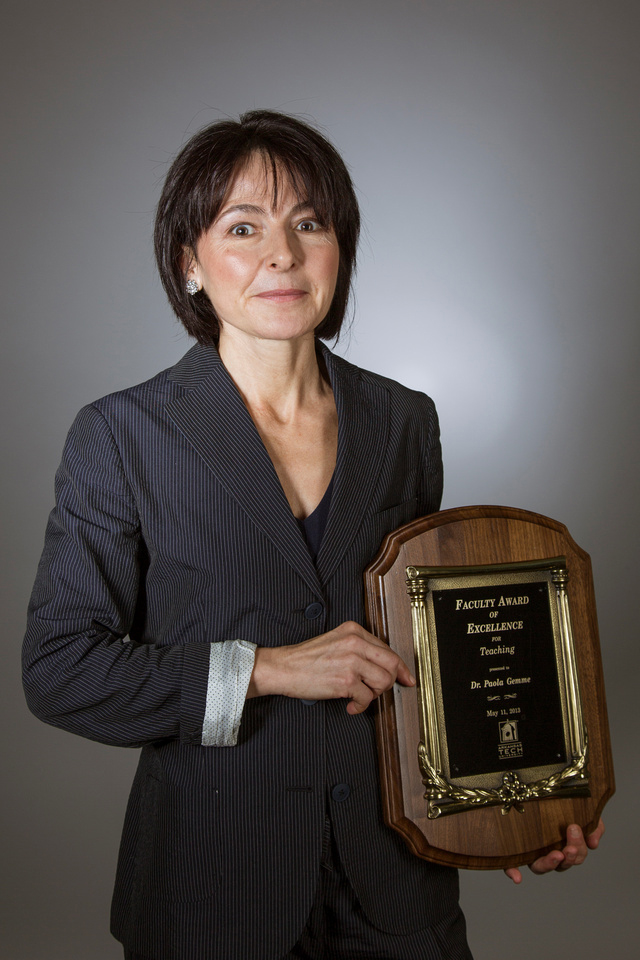 |
 |
 |
 |
 |
 |
 |
 |
 |
 |
| Dr Paola Gemme |
 |
| Cultural History | Literature | Art History |
 |
| PhD |
 |
 |
| Coming from: |
 |
Dardanelle, AR USA |
 |
 |
| Contact details: |
 |
|
 |
| EXPERTISE |
| Author / Writer |
| History - Art & Culture |
| Literature |
|
 |
 |
 |
| PREVIOUS EXPERIENCE WITH: |
   
|


Dr. Paola Gemme, a native of Italy, received her Ph.D. in American Cultural History from Penn State University. She is the author of an interdisciplinary study of American accounts of Italian nineteenth-century political history,
Domesticating Foreign Struggles: The Italian Risorgimento and Antebellum American Identity, published by the University of Georgia Press. She is a frequent speaker on issues ranging from immigrant literature and art history to public education at major academic conferences and a contributor to scholarly journals in American literature.
She has taught at universities in Italy, Scotland, the United States, and Guatemala and is currently Professor of English and MA English Program Director at Arkansas Tech University. Her lively teaching style and conviction that learning should be a source of joy in all contexts have earned her numerous teaching awards throughout her career, and she is now in charge of teacher education at her present institution.
When she is not lecturing in the classroom or on cruises, Dr. Gemme can be found running trails, moving compost in her yard, or exploring new recipes in her kitchen. Her energy and enthusiasm are contagious. Allow her to guide you in your journey to discover your destinations’ history, literature, architecture, and cuisine in her enjoyable presentations, where she mixes lecture with images and sound and encourages audience interaction.


(Click images for full size)


LATIN AMERICA
1. “Interpreter, Traitor, Icon: La Malinche through the Centuries.”
Learn about La Malinche, an Indian woman who played a key role in the Spanish conquest of the Aztec empire by acting as interpreter for the conquistador Hernán Cortéz, and how her figure has been interpreted from coeval indigenous texts to contemporary feminist reclamations.
2. “Discoverers of the Jungle of Stone: John Lloyd Stephens and Frederick Catherwood.”
Learn how an American diplomat and a British artist followed rumors of ruins buried in the Central American jungle and embarked on a journey of exploration that would lead to the discovery of ancient Maya civilization.
3. “Chocolate: A Cultural History.”
Follow the journey of chocolate from its ritualistic uses in Central America to the courts of Europe and the modern table.
4. “Guatemalan Rainbow: The Maya Textile Tradition.”
Discover the history of the art of weaving and embroidery passed down from generation to generation by the women of Guatemala. Learn how huipils, the rectangular embroidered blouses worn by indigenous women, indicate their religious beliefs and community of origin with distinctive patterns.
5. “A Path Between the Seas: The Panama Canal.”
Explore the history of the building of Panama Canal, one of the engineering marvels of the early twentieth century, from the bitter failure of Ferdinand de Lesseps, the man responsible for the Suez Canal, to the completion of the American project in 1914.
6. “Pirates: A Real History.”
Did pirates really sail under the “Jolly Roger,” the skull and cross bones black flag made famous by the movie industry? Did they bury treasures? Were there she-pirates? Who was Black Beard, the most renowned of the pirates of the Caribbean? Discover the truth underneath the romantic myths.
7. “Gabriel García Marquéz, Literary Maestro.”
Explore the life and works of Gabriel García Márquez, the renowned Colombian novelist and Nobel Prize winner. This introduction prepares you to delve into his acclaimed novels, One Hundred Years of Solitude and Love in the Time of Cholera. Discover Márquez's signature magic realism and the profound themes that permeate his storytelling.
ATLANTIC CROSSING
1. “The Age of Discovery: Navigators Who Bridged Two Worlds.”
This lecture explores the Age of Discovery, a pivotal era spanning the 15th and 17th centuries when European explorers charted new maritime routes and expanded global trade networks. It highlights Portugal’s leading role, with expeditions launched from Lisbon that reached Africa, Asia, and the Americas.
2. “Brazil from Colonization to Independence.”
This presentation surveys Brazilian history from the landing of Portuguese explorer Pedro Álvares Cabral in 1500 to Brazil’s declaration of independence in 1822.
3. “The African Presence in Brazil.”
Afro-Brazilians make up a significant portion of Brazil’s population. They are the descendants of the millions of Africans brought as slaves to Brazil beginning in the sixteenth-century century to work in agriculture, mining, and construction. This presentation explores the cultural legacy of this forced migration, including Afro-Brazilian religions like Candomblé, musical traditions such as samba, martial art forms such as capoeira, and the syncretism found in festivals like the carnival.
4. "From Feijoada to Pastel de Nata: Foods that Connect Brazil and Portugal."
This lecture explores the culinary connections between Brazil and Portugal, analyzing how dishes of Portuguese origin like meat stews and custard tarts were adapted and creolized in Brazil using local and African ingredients.
5. “A Social History of Samba: From Rio to the World.”
This talk follows samba’s journey from marginalized communities to global recognition. Born in Rio de Janeiro’s Afro-Brazilian favelas in the late nineteenth century, samba was initially rejected by Brazil’s elites. In the 1930s, however, President Getúlio Vargas used adopted as a symbol of national identity to unify Brazil’s diverse populations. Today, samba thrives globally, with Rio’s Carnival and local samba schools ensuring that traditional forms endure alongside new fusion ones that blend samba with other musical genres.
6. "Cape Verde: Where Africa Meets the Atlantic" delves into the unique geographical, historical, and cultural identity of Cape Verde. With a rich blend of African, Portuguese, and Creole influences, Cape Verde reflects the legacy of its colonial past while celebrating its vibrant cultural traditions. The talk explores how the islands served as a vital hub for transatlantic trade, maritime navigation, and migration.
7. “Conquistadors and Pirates: The History of the Canary Islands.”
The presentation explores the history of the Canary Islands, focusing on the settlement by the Guanches in the first millennium BC and European colonization in the fifteenth century, which transformed the islands into an essential hub for transatlantic trade and exploration and a prime target for pirates and privateers eager to plunder Spain’s wealth with the authorization of competing European powers.
8. “Madeira Wine: A Toast through History.”
The audience will learn how the birth and development of the Madeira wine is linked to transatlantic exploration and trade.
9. "Lisbon Through the Ages" explores the rich and complex history of Portugal’s capital, tracing its evolution from a modest Roman settlement to a global maritime hub. The lecture highlights Lisbon’s golden age during the Age of Exploration, when explorers like Vasco da Gama expanded Portugal’s influence worldwide. It delves into the city’s devastating 1755 earthquake, which reshaped its urban landscape, and examines Lisbon’s ability to rebuild and thrive in the aftermath.
10. "The Art of Azulejos: Portugal’s History in Tiles" examines the history and cultural significance of azulejos, the colorful ceramic tiles that have become a defining feature of Portuguese art and architecture.
MEDITERRANEAN
1. “How the Parthenon Lost Its Marbles.”
Learn how a collection of Acropolis artifacts where removed from Athens and sold to the British crown, which sparked a controversy that continues to this day.
2. “From Homer’s Iliad to Madeline Miller’s The Song of Achilles: The Myth of Troy through the Centuries.”
How has the myth of Troy been reimagined and adapted across time to reflect coeval preoccupations? Learn how the stories of Helen, Ulysses, and Achilles are reimagined to voice contemporary concerns about historical and modern slavery, gender identity and roles, and the destructive power of warfare.
3. “Istanbul: A Tale of Three Cities.”
A look at the complex history of a city between two continents which was capital to the Roman, Byzantine, and Ottoman empires to enable the audience to appreciate, among others, the traces of the hippodrome of Constantinople in Sultanahmet Square and of a Greek Orthodox church in Hagia Sophia Grand Mosque.


Dr. Gemme is an avid traveler and itinerant scholar who taught at universities in Europe, the United States, and Central America. She first worked as an enrichment lecturer on an MSC Mediterranean itinerary right out of college, but later paused to focus on her academic career and her family. She returned to onboard lecturing in January 2025 on a Mexico, Panama Canal, and Columbia cruise with Norwegian Cruise Line and she looks forward to more opportunities to share her passion for learning with fellow cultural explorers.